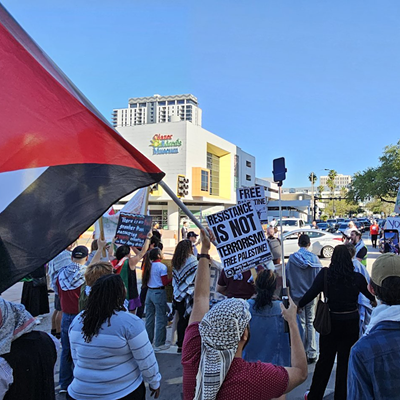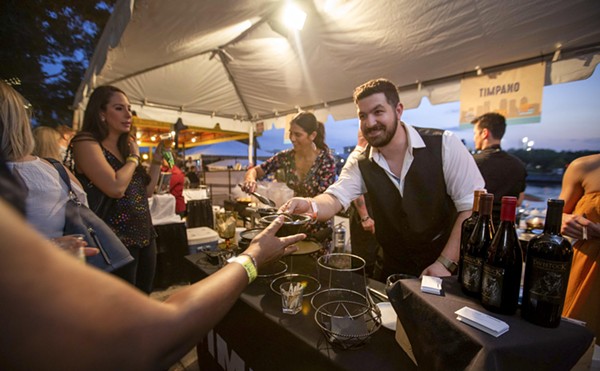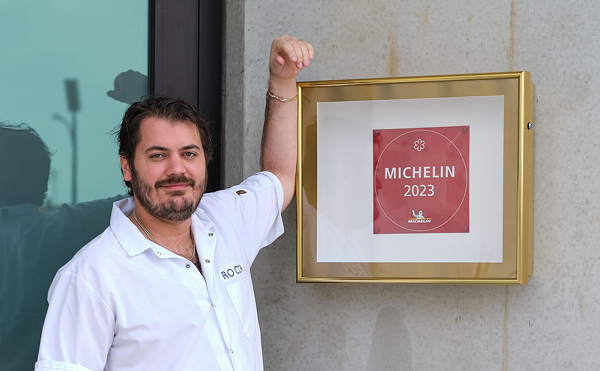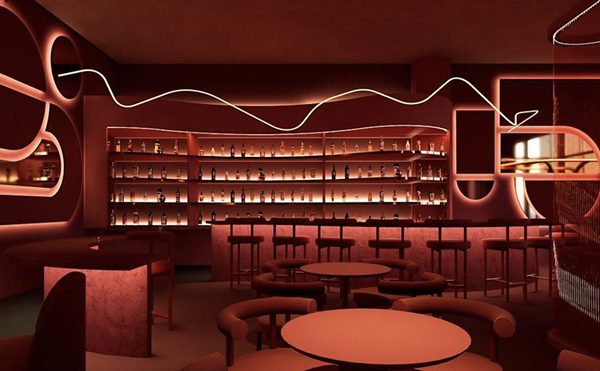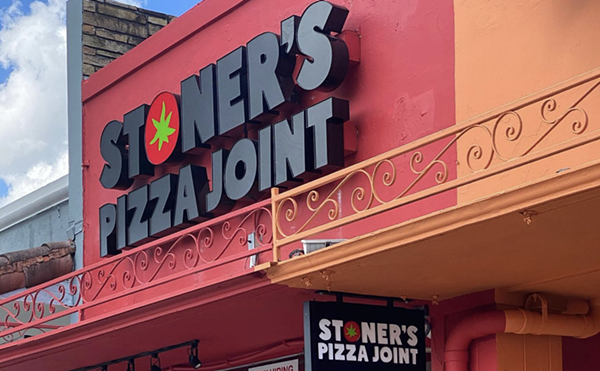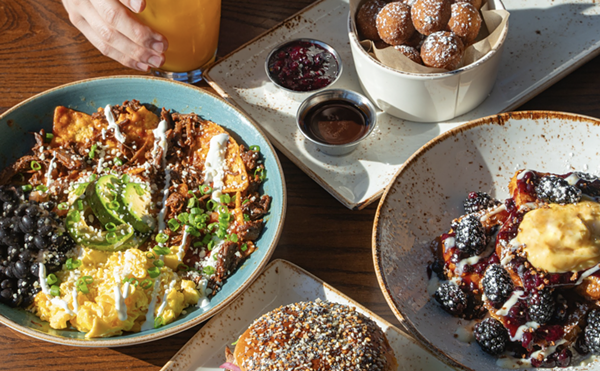Food scholar Andy Huse kicked off the St. Petersburg Museum of History's Happy Hour with a Historian series last Thursday with a light-hearted lecture on a subject he knows a whole lot about: Florida foodways, from street vendors to wicker chair dining halls.
And while Huse declared that the back-and-forth between Tampa and Miami regarding the Cuban sandwich was over — and had been before it began — the crowd was very much into the topic.
“It’s one of the things like where you write a hit single, and everybody wants to hear it,” Huse admitted, when asked how often the Cuban sandwich debate is brought up.
Still, he was happy to send some digs in the Miami's direction.
Jabbing at the city's soft, mass-produced hoagie rolls, he joked, “They don’t even know how to make bread anymore.”
Luckily for Miami, La Segunda Bakery in Ybor picks up the slack for the Magic City’s Cuban bread dilemma. La Segunda, which does big business shipping bread elsewhere, sends thousands of its loaves to Miami every month — all the right texture, color, shape and size.
“I say to people in Miami, when you get the Cuban bread right, then let’s talk about the sandwich.” The audience applauded as they chowed down on Cubans from Pipo’s Cafe.
Huse, an occasional CL contributor, became interested in food and cooking (but mostly eating, he admits) as a cash-strapped history major living in Tampa in the ’90s. He enjoyed discovering ethnic restaurants that served meals without pretension.
A librarian at USF, Huse has access to archives of old advertisements and photos that fill in some blanks about Tampa’s roots. One ad from the 1950s drew a particularly vocal response from the audience.
“If your wife can’t cook you can keep her for a pet and go to the CUBAN CAFÉ.”
Photos of booze seized during Prohibition (which was mostly disregarded in Tampa, albeit with sporadic, obligatory busts) showed burlap sacks bulging with rum bottles, with onlookers peering from behind a fence.
“Someone didn’t pay off the right guy,” Huse said.
Bay area food didn’t originate among people with vented chef jackets or culinary art degrees, but among regular folks who made food based on their resources. Deviled crabs, made with blue crabs caught from the bay, were sold on the streets of Ybor during cigar factory strikes.
Gregory Wilson, 58, a Florida native who attended elementary school in Ybor, grew up under the ethos, “Never trust a Cuban who didn’t smell like cigar smoke.”
“I was eating black beans and rice before ever knowing what a McDonalds was,” Wilson said.
To Wilson, Ybor in the 1960s was a trinity of Cuban, Spanish and Italian culture and cuisine that intermingled. If you were eating spaghetti for dinner, it was with Cuban bread.
Happy Hour with a Historian continues Thursday, March 7, 6-8 p.m., with Terry Tomalin’s talk on Florida fishing culture.


